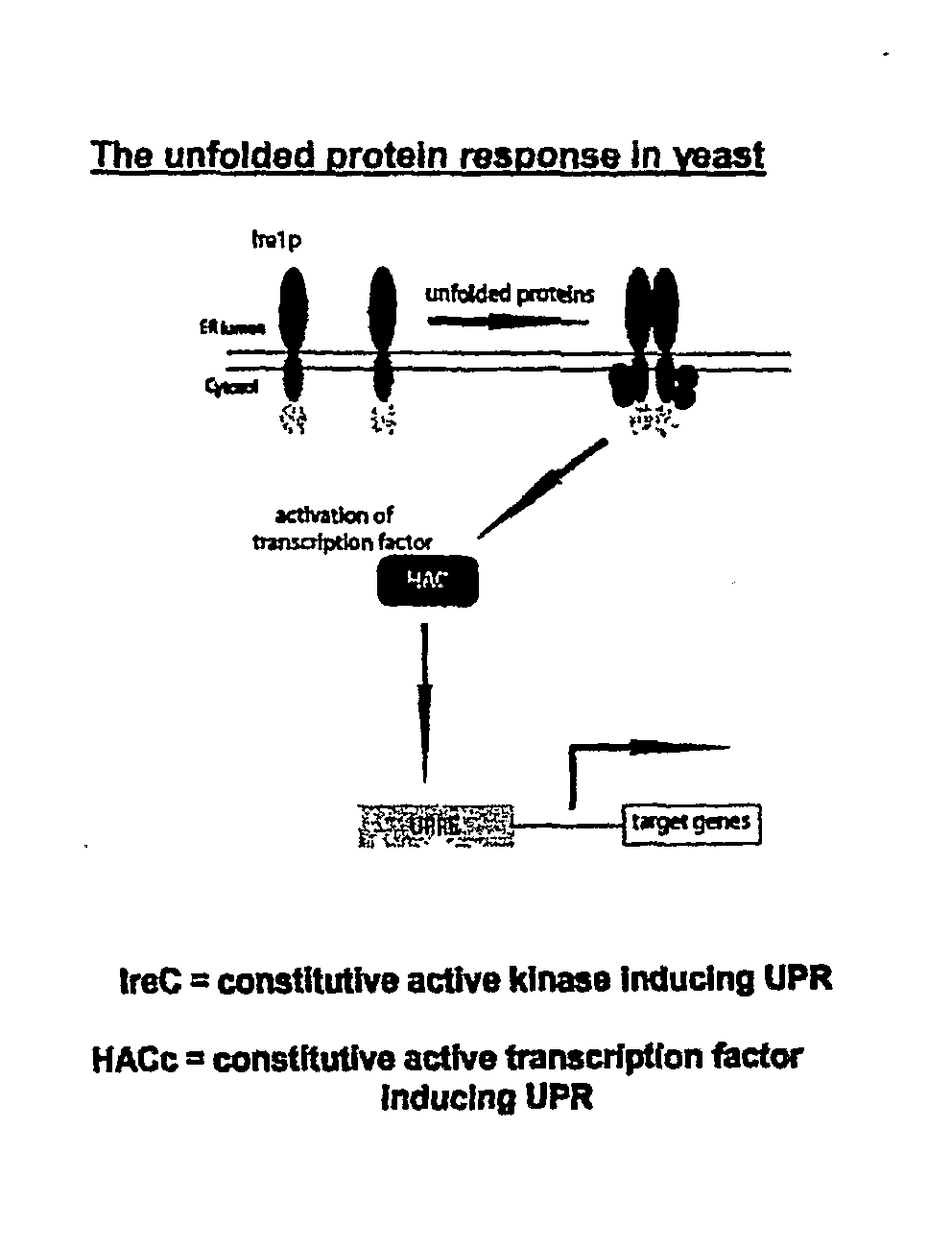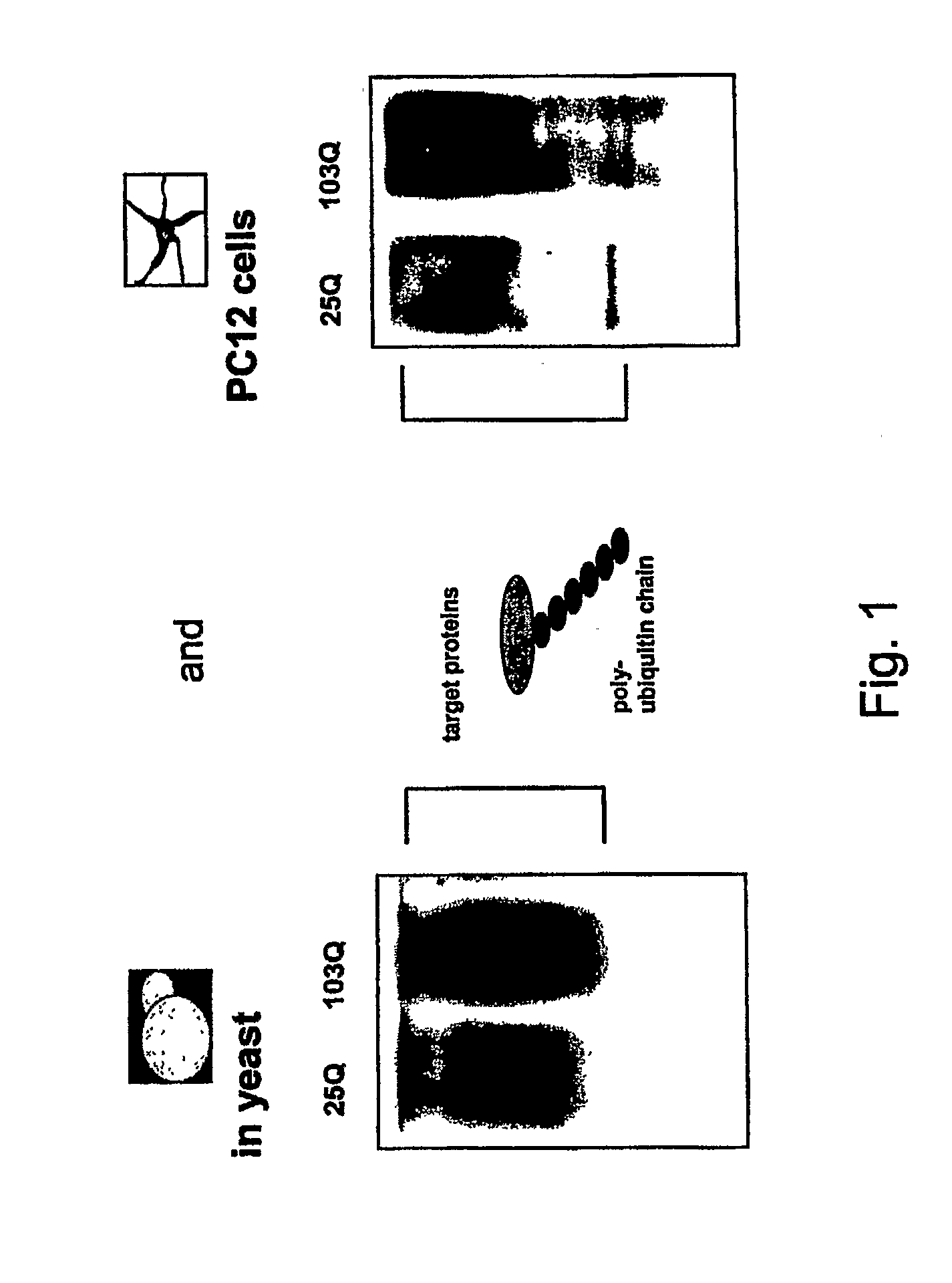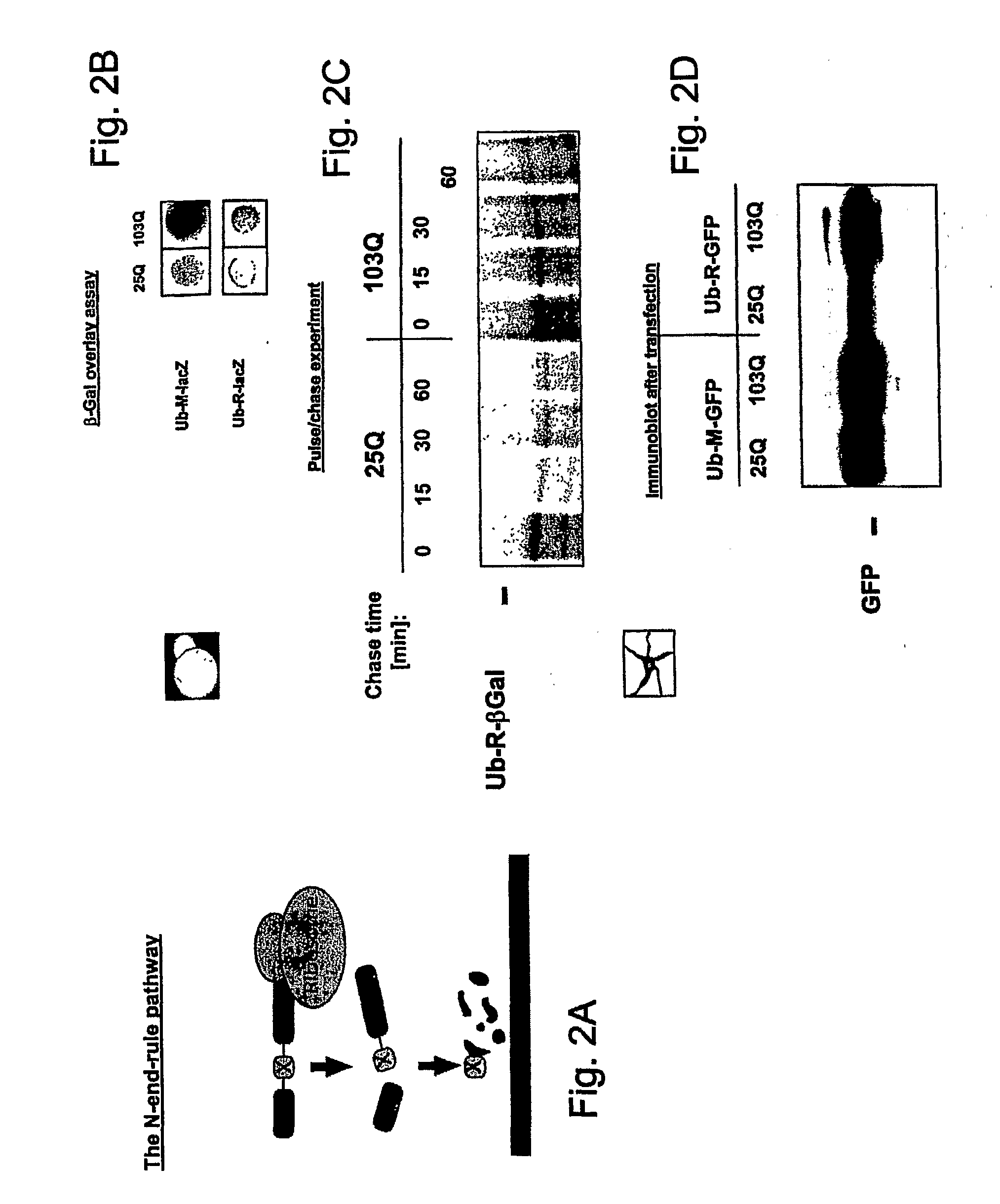Compositions and Methods for Treatment of Protein Misfolding Diseases
a technology of protein misfolding and compositions, applied in the field of compositions and methods for treating protein misfolding diseases, can solve the problems of specific cells in the brains of hd patients' demise, and achieve the effect of stimulating the activity of xbp-1 and increasing the splicing of protein
- Summary
- Abstract
- Description
- Claims
- Application Information
AI Technical Summary
Benefits of technology
Problems solved by technology
Method used
Image
Examples
example 1
Misfolded Huntingtin Stabilizes Ubiquitinated Proteins
[0087] Protein extracts of yeast cells and PC12 cells (rat neuronal cells) expressing huntingtin with 25 Qs and 103Qs, respectively, were subjected to immunoblotting using an anti-ubiquitin antibody. In both systems, cells expressing 103Q huntingtin showed increased levels of ubiquitinated proteins (FIG. 1). These results indicated that expression of a misfolded huntingtin protein resulted in a decrease in the turnover of ubiquitinated proteins in yeast cells as well as in neuronal cells.
example 2
Huntingtin Stabilizes N-End Rule Substrates
[0088] N-end-rule substrates were co-expressed in yeast (FIGS. 2B and 2C) or PC 12 cells (FIG. 2D) with 25 or 103 Q huntingtin. The impairment of lacZ or GFP reporter degradation in the presence of 103 Q huntingtin was monitored by an overlay assay (FIG. 2B), pulse chase analysis (FIG. 2C), or immunoblotting (FIG. 2D). These results indicated that expression of a misfolded huntingtin protein resulted in the stabilization of N-end rule substrates in yeast cells as well as in neuronal cells.
example 3
Huntingtin Specifically Inhibits the Ubiquitin Fusion Degradation (UFD Pathway
[0089] UFD substrates were co-expressed in yeast (FIGS. 3B and 3C) or PC 12 cells (FIG. 3D) with 25 and 103 Q huntingtin. The impairment of lacZ or GFP reporter degradation in the presence of 103 Q huntingtin was monitored by a quantitative B-Gal-assay (FIG. 3B), pulse chase analysis (FIG. 3C), or immunoblotting (FIG. 3D). These results indicated that expression of a misfolded huntingtin protein severely inhibited turnover in the UFD pathway in yeast cells and neuronal cells.
PUM
| Property | Measurement | Unit |
|---|---|---|
| ER stress | aaaaa | aaaaa |
| ER) stress | aaaaa | aaaaa |
| length | aaaaa | aaaaa |
Abstract
Description
Claims
Application Information
 Login to View More
Login to View More - R&D
- Intellectual Property
- Life Sciences
- Materials
- Tech Scout
- Unparalleled Data Quality
- Higher Quality Content
- 60% Fewer Hallucinations
Browse by: Latest US Patents, China's latest patents, Technical Efficacy Thesaurus, Application Domain, Technology Topic, Popular Technical Reports.
© 2025 PatSnap. All rights reserved.Legal|Privacy policy|Modern Slavery Act Transparency Statement|Sitemap|About US| Contact US: help@patsnap.com



